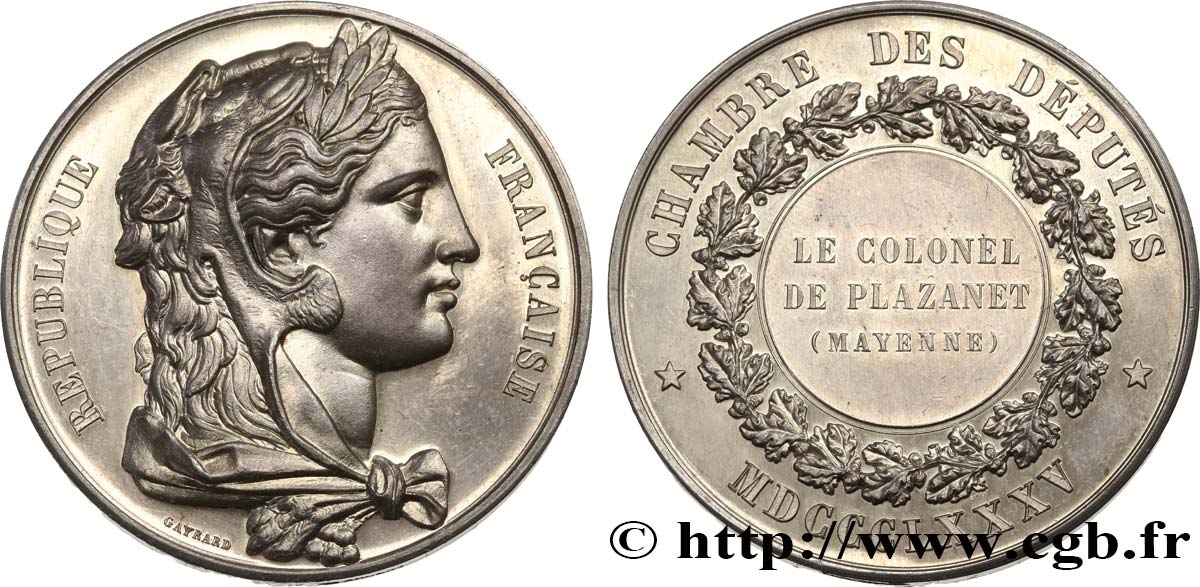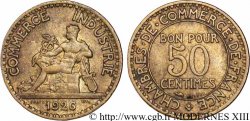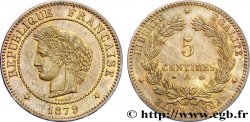fme_586228 - III REPUBLIC Médaille parlementaire, IVe législature, Charles-Théophile de Plazanet
недоступный.
Товар уже продан в нашем интернет-магазине (2022)
Цена: : 380.00 €
Товар уже продан в нашем интернет-магазине (2022)
Цена: : 380.00 €
Тип Médaille parlementaire, IVe législature, Charles-Théophile de Plazanet
Дата: 1885
Монетный двор / Город: 53 - Mayenne
Металл: silver
Диаметр: 51 mm
Ориентация осей монеты: 12 h.
Гравер Barre d’après Gayrard
Вес: 68,99 g.
Век: lisse + corne d’abondance ARGENT
Пуансон: corne d’abondance ARGENT
Редкость: R3
Комментарии о состоянии
Cette médaille présente de hauts reliefs et est recouverte d’une jolie patine grise. Traces de manipulation. Présence de quelques coups et rayures
Лицевая сторона
Аверс: легенда: REPUBLIQUE - FRANÇAISE.
Аверс: описание: Buste d’Omphale à droite, laurée, portant la dépouille du lion de Némée ; au-dessous GAYRARD.
Обратная сторона
Реверс: легенда: * CHAMBRE DES DÉPUTÉS * - MDCCCLXXXV // LE COLONEL / DE PLAZANET / (MAYENNE).
Реверс: Описание: Légende circulaire et en trois lignes dans un médaillon entouré d’une couronne de chêne.
Комментарий
Médaille attribuée en 1885 à Charles-Théophile de Plazanet, député de la Mayenne à l’occasion de la IVe législature. Il naquit le 15 avril 1821 à Paris et y décéda le 25 mai 1892. Il est le fils du général de Plazanet et fit une carrière militaire. En 1841, il entra à Saint-Cyr. Après différentes campagnes il devint chevalier de la Légion d’honneur. En 1875 il est colonel et en 1880 fait commandeur de la Légion d’honneur. Conseiller général de la Mayenne depuis 1871, il prend sa retraite de l’armée en 1881 et se porte candidat aux élections législatives, sans succès. Il est élu député à l’occasion de la IVe législature (4 octobre 1885) et siège sur les bancs de la droite royaliste. Il sera réélu député de la Mayenne en 1889. Il fut maire de Saint-Ceneré.








 Cообщить об ошибке
Cообщить об ошибке Распечатать страницу
Распечатать страницу Отправить мой выбор
Отправить мой выбор Задать вопрос
Задать вопрос Consign / sell
Consign / sell
 Информация
Информация



